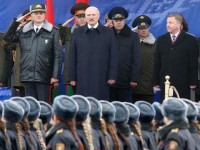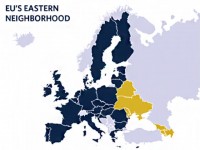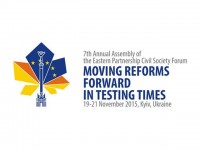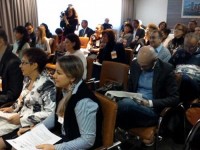Minsk’s muddled media clampdown could jeopardize warming of relations with the West.
Tatiana Vadalazhskaya: The attempt to restrict the work of sociologists won’t work out

According to the senior analyst of the Centre for European Transformation, punitive measures for unsanctioned public surveys are intended primarily for independent media.
House of Representatives introduced fines for conducting public surveys that concern elections and referendums; Administrative Code was amplified with Article No.9.28.
Tatiana Vadalazhskaya, PhD in sociology and senior analyst of the Centre for European Transformation in the talk with the EuroBelarus Information Service noted that she sees no big danger for the work of the non-state sociological services:
— The thing is that such kinds of surveys were subject to special licensing before, and not so many sociological services had a right to carry out polls on referendums, social and political issues. I.e. I see no considerable changes in this regard. What is important is that there will be sanctions towards those who publish the results of the surveys without special permission. That is why I believe that these measures are aimed primarily at journalists and editors — those, who spread information; thus, they are aimed at limiting the spread of such information.
— Can these innovations be considered a preparation of the authorities for 2015 presidential elections?
— There might be some truth in it, as it is before the elections when authorities introduce some extra measures to lessen the stress, difficulties and problems. But I believe that this restriction is too small a contribution into the structure of the election system and political life and cannot be of great influence. It can be viewed only as a security element, as the information from the independent sociological centers will be spread this way or another. Anyway, we still have Internet, people will still be aware of this information, which means these limitations will make no irresistible hindrances.
Others
-
In Belarus, a rising fear: Will we be the next Ukraine?
The relationship between Russia and Belarus has never been an easy one. The two former Soviet republics have spent the last two decades on a roller coaster ride — sometimes allies, sometimes adversaries in heated public rows.
-
The EU’s Benign Neglect of Eastern Europe
Between November 6 and December 11, 2015, Carnegie Europe continued its Capitals Series. In this second phase, the focus was on the EU’s Eastern neighbors, which the bloc has so often zigzagged over in trying to establish a coherent policy toward them collectively or bilaterally.
-
New ENP and Civil Society’s Role in Focus of the 7th EaP CSF Annual Assembly (Photo)
The 7th Annual Assembly of the Eastern Partnership Civil Society Forum was held in Kyiv on 19-21 November attracting around 300 participants, observers and guests who attended more than 20 sessions and a Networking Fair in the framework of the Assembly.
-
Is social economy a phenomenon for Belarus?
The conference “Social economy: how to be successful despite the crisis” launched in Minsk on October 22.








Comments
From farewell to a new Eastern policy and towards a new development
Poland and Germany were both initiators and drivers of a New Eastern policy linked to the Eastern neighborhood and Russia/Soviet Union.